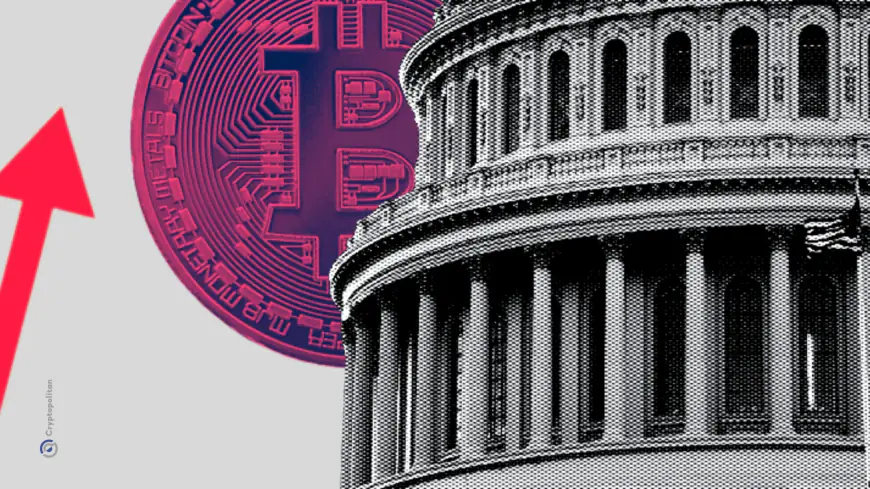Pennsylvania passes a crypto bipartisan bill dubbed the Bitcoin Rights Bill
The Pennsylvania House of Representatives passed a crypto bipartisan bill on October 23, becoming the latest state to pass a crypto regulations bill. According to an announcement by Fox Business, the bill, dubbed the Bitcoin Rights Bill, will provide more legal clarity around digital assets in the state.

The Pennsylvania House of Representatives passed a crypto bipartisan bill on October 23, becoming the latest state to pass a crypto regulations bill.
According to an announcement by Fox Business, the bill, dubbed the Bitcoin Rights Bill, will provide more legal clarity around digital assets in the state.
Among the 13 million people in the state, 1.5 million, accounting for 12% of the population, own a digital asset. The Pennsylvania crypto bipartisan bill will protect the rights of residents’ self-custody for digital assets. The law will also allow the residents to use Bitcoin for payment, provide clear taxation regulations, and prevent state agencies from overregulating cryptocurrencies.
Notably, there was significant support for the bill, passing with 176 ‘yes’ votes against 26 ‘no’ votes. Republican representatives unanimously voted ‘yes’ for the bill, getting additional support from 76 of the 103 Democrats.
The bill, presented by Republican Representative and Bitcoin investor Mike Cabell, aims to help House representatives understand crypto and blockchain technology and provide a basic regulatory framework for crypto transactions in Pennsylvania.
The Satoshi Action Fund helped with the bill’s crafting, adding Pennsylvania to the 20 states the SAF has aided in the process.
The crypto community in Pennsylvania could affect election results
NEARLY HALF OF ALL CORPORATE ELECTION CONTRIBUTIONS IN 2024 HAVE COME FROM THE CRYPTO SECTOR.
Axios notes: “Blockchain companies have supplied 48% of the $248 million of corporate money donated to influence federal elections this cycle,” according to Public Citizen. pic.twitter.com/M6Aa6k5WjQ
— *Walter Bloomberg (@DeItaone) August 22, 2024
Crypto firms have made significant contributions to the elections. There have also been significant arguments about how the crypto community might influence the upcoming U.S. elections.
The Pennsylvania crypto community might significantly sway the votes to Democrats or Republicans, according to SAF’s founder, Dennis Porter.
“Pennsylvania is the most important battleground state in the presidential race, and the outcome could hinge on a small handful of voters.”
So far, many within the crypto community do not view Vice President Kamala Harris as pro-crypto, mainly due to her contribution to Biden’s administration.
On the other hand, former president Donald Trump has been increasingly vocal about his support for crypto despite previous skepticism, which could garner him favor from crypto voters.
Fox Business also noted the tight race between Democrat Bob Casey and Republican and BTC investor Dave McCormick, which the 1.5 million crypto users in Pennsylvania could influence. In recent polls, the former president and vice president Harris are in a tight race.
Cabell notes the lack of regulatory clarity on the federal level
The crypto market, worth over $2 trillion, still lacks federal-level regulatory clarity. A notable issue is the confusion brought by the U.S. SEC at the federal level.
So far, digital assets, considered securities, fall under the jurisdiction of the U.S. SEC, while crypto, which is considered a commodity, falls under the CFTC’s jurisdiction.
In the confusion, Cabell appreciated the efforts from both sides of the aisle to provide Pennsylvanian crypto users with regulatory clarity. The representative further mentioned the need for bipartisan support on bills geared toward financial freedom. Notably, Pennsylvania is the only state with a split legislature, requiring bills to be bipartisan.
Cabell noted that while the bill garnered the most support from Republican representatives, Democrats played a major role in passing the bill in the House. The representative mentioned that the 26 ‘nos’ came from representatives with limited knowledge about blockchain tech.
What's Your Reaction?









































































































